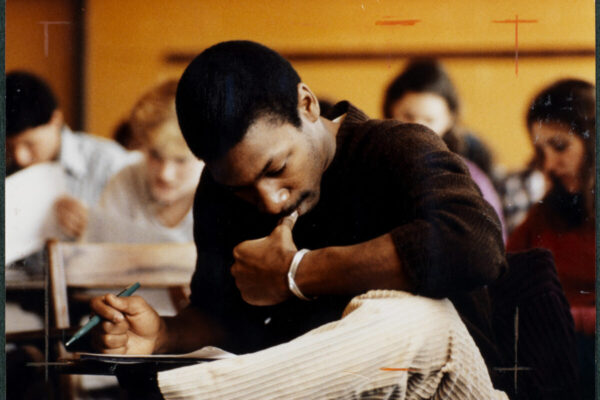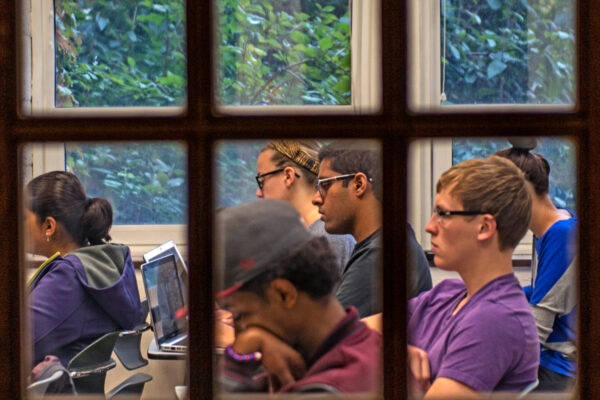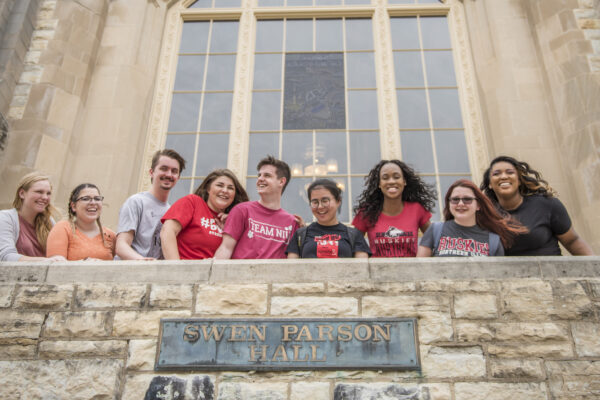A conversation with Broward College’s Marielena DeSanctis. Originally posted on the Association of College and University Educators’ The “Q” blog.
Research published in June 2020 found that Broward College students were more likely to complete and pass their courses, with Black and Pell-eligible students achieving outcomes comparable with their peers, when taught by faculty who completed ACUE’s course in research-based effective teaching practices.
Marielena DeSanctis, college provost and senior vice president for academic affairs and student services at Broward, recently spoke with Sherri Hughes, ACE’s assistant vice president of professional learning, about the impact of the ACUE program on faculty development, equity, and student success. She also describes her own journey evolving into a leader in higher education.
Key Takeaways From the Conversation
Student success is about more than retention and graduation rates.
DeSanctis notes that part of Broward’s reputation and standing as a four-time Aspen-recognized Top 10 institution is because of how they measure student success. The college studies student earnings in the years after graduation, focusing on economic mobility.
“You have to embrace the fact that our students are graduating into a world that’s very different [from previous generations],” she adds. Today’s students tend not to stay in one organization for more than a few years, unlike their predecessors. Often, students return to college to gain new credentials or skills for a pivot.
Broward is home to many adult students, and the school seeks to be an “opportunity for people in our community to have a better life for themselves,” DeSanctis says. “They need to be competitive in a changing world. To achieve those kinds of outcomes, we focus on the entire student experience.”
“The classroom is where the magic happens.”
DeSanctis emphasizes the role of faculty in students’ lives, noting that many students are dealing with family obligations, jobs, and more. “For our students, retention is a day-to-day decision. A bump in the road can impact their plans.”
As someone who went to school as a mother of two, DeSanctis can empathize. “My experience with faculty and classmates kept me going,” she says. “They made me understand that what I was doing was going to be important.”
In turn, faculty need to be equipped to effectively teach students.
“Teaching is really hard work,” DeSanctis says. As a leader, she understands that providing both faculty and students with resources is essential in fulfilling their mission. She cites examples such as Broward’s Center for Teaching Excellence and Learning (CTEL) as one tool that supports faculty in helping students succeed. Among other efforts, the CTEL produces video podcasts of faculty sharing their best practices and experience. “What they’ve done consistently year after year has been nothing short of miraculous.”
“There probably hasn’t been anything more impactful than our implementation of ACUE’s Effective Teaching Practices,” sayd DeSanctis. Broward implemented the program several years ago, and the combination of completing lessons asynchronously and meeting together synchronously to have “rich conversations” and share commonalities and teaching approaches across disciplines allows faculty to “develop an understanding of our students.” The impact, she says, extends beyond the formal program, where faculty continue to support one another and engage in suggesting different approaches to teaching and the assessment of learning.
Watch the full webinar and join the conversation by creating a free account on ACE Engage®.
Quality teaching is equitable.
DeSanctis says faculty give ACUE “rave reviews” and “always talk about their experience with ACUE.”
The data support the positive impact of ACUE. Research into Broward’s work found that course completion gaps were closed for Black students and course-passing gaps were closed for Pell-eligible students taught by ACUE-credentialed faculty at Broward.
The research conducted with faculty who completed the ACUE course in the 2017-2018 and 2018-2019 academic years indicated that an additional 282 students completed their courses than would have otherwise when controlling for student demographics and other factors.
Similarly, researchers found that an additional 435 students passed their courses than would have otherwise.
Among Pell-eligible students, the gap in passing rates was eliminated and larger impacts were seen on course completion rates (compared to students not Pell-eligible). For Black students, the gap in course completion closed and the gap in passing rates was cut in half compared to White students.
“I’m still getting goosebumps about this,” DeSanctis says.
DeSanctis also discussed other efforts Broward has made in light of the COVID-19 pandemic, such as providing laptops and wifi hotspots to students in need.
But even before the pandemic began, Broward President Gregory Haile pushed leaders and faculty to consider how they could support student success in the most impactful way possible. This meant considering the quality, rather than quantity, of its initiatives and freeing up resources. “That approach put us in a position to continue our equity work and support students.”
Leadership requires taking risks.
“Never let fear get in the way,” DeSanctis urges other leaders. “Being able to transform an organization takes a lot of risk. If you believe in your vision, you can’t be afraid of what people think.”
DeSanctis knows about risk-taking firsthand. She earned a mechanical engineering degree from Georgia Tech and began her career at a manufacturing company. But having grown up with a mother who was a middle school math teacher, she was always drawn to education—so much so that she ultimately left her job to become a teacher. As she rose the ranks at the local high school and district, she became acquainted with Broward, and when the opportunity arose to become vice president of student affairs at the college, she jumped at the chance.
What particularly appealed to her about Broward, she says, is that the college draws many Pell-eligible, first-generation, and minority students of all ages.
“I wanted to see if I could make a greater impact on the community I loved,” she says.
About Conversations on Student Success: This series offers an informal opportunity to learn from a range of leaders and experts on timely topics relevant to students’ success. Conversations on Student Success are produced in collaboration with the Association of College and University Educators.
If you have any questions or comments about this blog post, please contact us.


